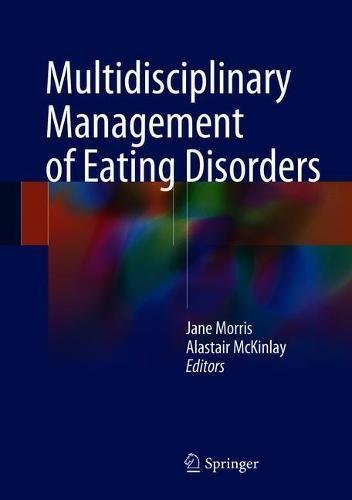

Most ebook files are in PDF format, so you can easily read them using various software such as Foxit Reader or directly on the Google Chrome browser.
Some ebook files are released by publishers in other formats such as .awz, .mobi, .epub, .fb2, etc. You may need to install specific software to read these formats on mobile/PC, such as Calibre.
Please read the tutorial at this link: https://ebookbell.com/faq
We offer FREE conversion to the popular formats you request; however, this may take some time. Therefore, right after payment, please email us, and we will try to provide the service as quickly as possible.
For some exceptional file formats or broken links (if any), please refrain from opening any disputes. Instead, email us first, and we will try to assist within a maximum of 6 hours.
EbookBell Team

4.7
96 reviewsThis Handbook is an indispensable guide for the multidisciplinary management of eating disorders. It discusses a broad range of issues: managing high-risk patients, the challenges of inserting feeding tubes, addressing nutritional aspects and dealing with additional disorders which might complicate matters, such as diabetes, coeliac disease and cystic fibrosis. It discusses fertility, pregnancy, and eating disorders in children and adolescents, as well as addressing the needs of families.
Chapters contain key checklists and flow diagrams. Abundant pictures and conversations, coloured diagrams, charts, maps and boxes, support readers’ varying learning styles and assist retention of key points. Vignettes taken from real (but strenuously anonymised) cases appeal to clinicians’ preference for case-based learning. The book also functions as a practical manual of ‘What to do – and what NOT to do’ with practical scenarios.
In the acute situation, clinicians will be able to go directly to the relevant chapter to guide the team through the ‘when, where, how, why and with whom’ of assessing and managing patients with eating disorders. The book is primarily aimed at postgraduate physicians managing patients with Eating disorders on Gastrointestinal, Endocrine or general medical wards, and those who seek to deepen their expertise as they sit higher professional examinations. It is of interest to both medical and psychiatric clinicians, as well as useful to nursing and multidisciplinary staff who want to develop a compassionate understanding of the true pain driving their patients’ behaviours.